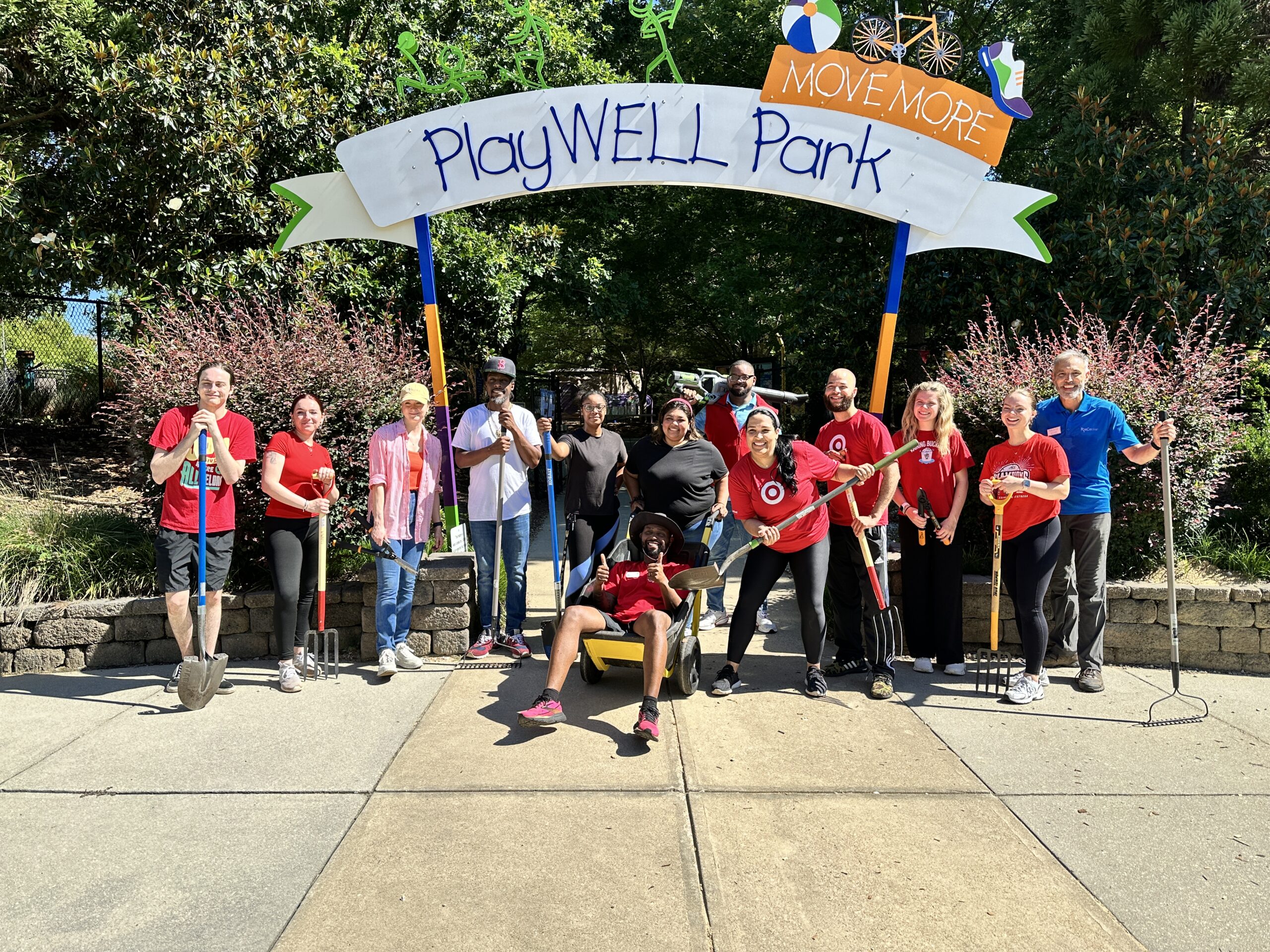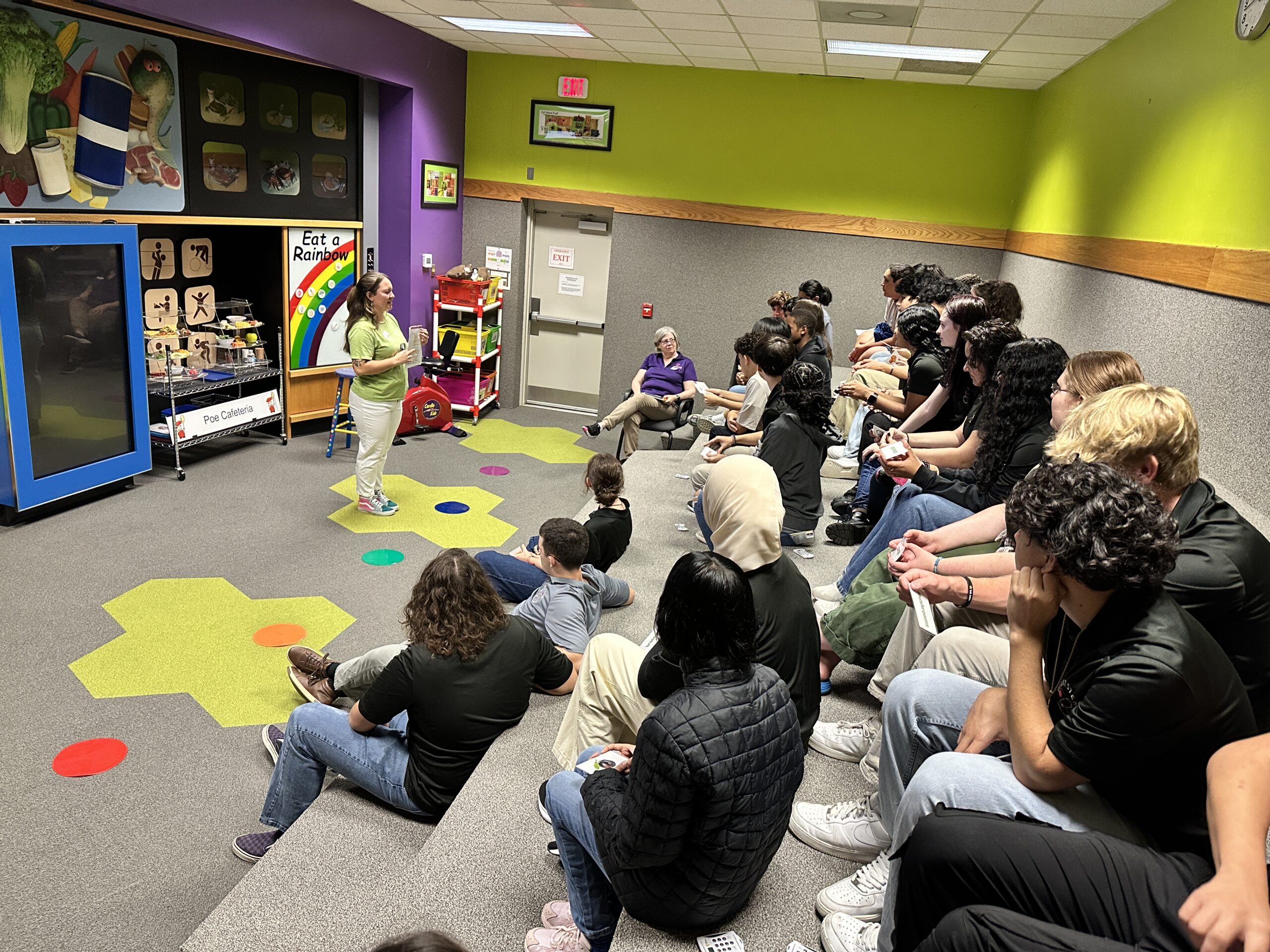
Volunteerism: Where Business Meets Community
Callie Hammer
Development Associate Director
Poe Center for Health Education
Have you heard of the term corporate social responsibility (CSR)? The term may sound daunting, but at its core, corporate social responsibility is the way that businesses work toward and achieve goals related to ethics, sustainability, and social impact1. A brand or company’s easily-recognizable values, connections to social causes, and ties to the community can enhance public perception and interactions.
1. Philanthropic Responsibility: Actively seeking to make society a better place.
2. Ethical Responsibility: Operating in a fair manner towards employees, suppliers, and customers. This includes fair pay and safe working conditions.
3. Environmental Responsibility: Behaving in an environmentally friendly way by reducing harmful practices, regulating energy consumption, and offsetting negative environmental impact.
4. Economic Responsibility: Using money not just for profit, but for good.
Historically, businesses have participated in philanthropic responsibility by putting company earnings towards a cause or establishing a corporate foundation or trust. However, the landscape of philanthropic responsibility is changing, and it is shifting to include employees.
Employees are now centered in companies’ efforts to meet philanthropic goals. New strategies include employee donation match programs, fundraising campaigns, and volunteerism.

Types of Volunteerism:
- Volunteer Time Off: Paid time that employees can use to complete volunteer work. This supports individual volunteer efforts.
- Designated Day of Service: A planned day where a group of employees from a company volunteer with an organization during normal work hours. This supports team-based volunteer efforts.
- Volunteer Grant Program: Corporate initiative where an employer donates money to a nonprofit organization on behalf of an employee who volunteers for a certain number of hours. Grant programs may vary from business to business.
Why is volunteerism an important part of CSR?
Volunteerism can be one of the most visible forms of corporate social responsibility and can positively influence public perception of a business. Here’s how:

- Direct Community Impact: Volunteerism signals that the business is invested in supporting and solving real-world problems and that the commitment is more than writing checks.
- Brand & Reputation2: Volunteering builds goodwill within the community. A business that is active in the community earns more trust, influence, and loyalty.
- Strategic Partnerships3: By volunteering and supporting organizations that have a similar focus, a business’s efforts can increase awareness and amplify social change through shared networks, resources, and time spent.
Why should volunteerism be a part of your business’s CSR goals?
Volunteerism provides a long list of benefits to companies and supports the everyday needs of nonprofit organizations. Many nonprofit organizations have large projects that can be done in a day with the support of helping hands. There are many volunteer opportunities at the Poe Center, such as mulching PlayWell Park, completing a mailing project, planting garden beds in our GrowWell Garden, or volunteering at Poe Center events.
Additionally, nonprofits can benefit from skill-based volunteering, where employees lend their time and professional skills to provide support. Many employees have professional skills and backgrounds that benefit nonprofit organizations. This includes, but is not limited to, legal expertise, accounting knowledge, financial advising, subject area expertise, and assistance from local elected officials. Professional skillsets are vital to nonprofit Boards of Directors, committees, and specific projects or initiatives.
- Higher Employee Engagement & Satisfaction: Volunteering provides employees with a sense of purpose, fosters community connections, and makes a difference. Employees involved in volunteer activities report higher career satisfaction and a greater sense of pride4 .
- Reduced Employee Turnover: Employees who feel engaged and connected have 20% longer expected tenures and are 50% more likely to be in leadership positions5 .
- Increased Team Morale: Team volunteerism gives coworkers the chance to connect and engage with each other outside of the workplace. This creates authentic connections outside of projects, goals, and expectations. Doing meaningful work together can strengthen team bonds and in turn enhance productivity, morale, and team culture5.

Volunteerism is a mutually beneficial component of corporate social responsibility. Organizations like the Poe Center are able to further their mission every day by connecting and collaborating with local companies and businesses.
The Poe Center is committed to creating a healthier future for all North Carolinians and we welcome volunteers from companies or businesses that want to be a part of our mission.
Sources
Corporate Social Responsibility: Types and key insights. (n.d.). Corporate Social Responsibility: Types and key insights.
How Volunteerism is the future of CSR | Percent Pledge. (n.d.). How Volunteerism is the future of CSR | Percent Pledge.
3Strand, B. (2024, April 3). Corporate Social Responsibility: Empowering nonprofits. POINT – Easiest Volunteer App, Everrr. Corporate Social Responsibility: Empowering nonprofits.
Basil, D. &. R. M. &. B. M. &. U. J. (2011). Company support for employee volunteerism: Does size matter? ideas.repec.org. Company support for employee volunteerism: Does size matter?
Chromy, M. (2025, September 10). Corporate Volunteerism: A complete guide to getting started. Bloomerang. Corporate Volunteerism: A complete guide to getting started.

Featured Program:
Unsure of your company’s corporate social responsibility goals and commitment to philanthropy? Ask! Looking to grow your company’s philanthropic responsibility efforts? Reach out to us. We would love to work with you and your group!
